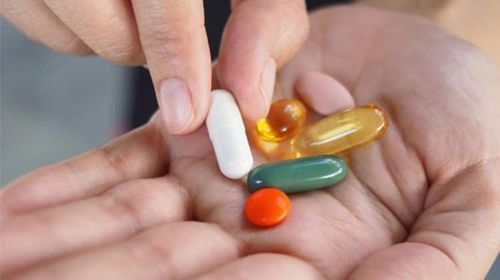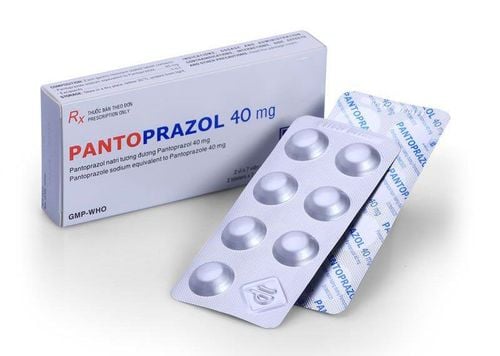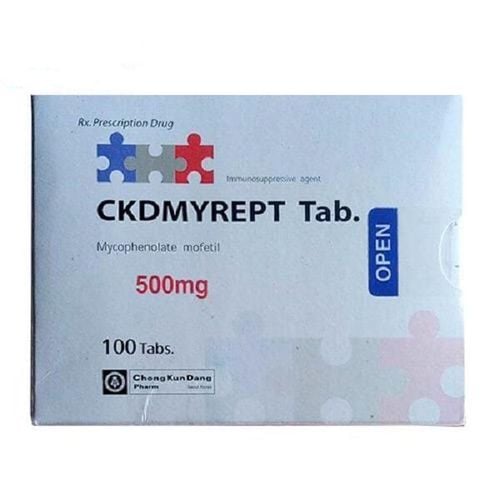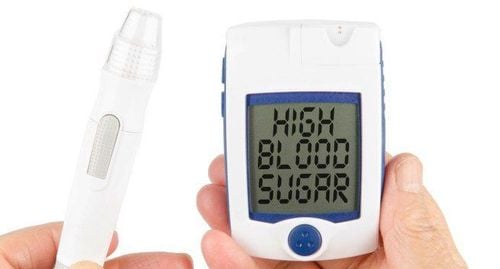This is an automatically translated article.
Glomerular filtration rate is the amount of blood that is filtered through the kidneys over a certain period of time, which is valuable in assessing kidney function. When the glomerular filtration rate is low, it means the kidney's ability to filter blood is impaired, seen in acute and chronic kidney disease.1. How much glomerular filtration rate is low?
To know if the glomerular filtration rate is low or not, a glomerular filtration rate test is required. Usually, there is no direct measure of glomerular filtration rate, so it is difficult to give an exact calculation of glomerular filtration rate. People based on age, sex and the amount of creatinine in the blood, in the urine to give some formulas to calculate the glomerular filtration rate. Creatinine is a waste product produced during normal movement of muscle tissue. Once produced, it is filtered by the kidneys and eliminated entirely in the urine. The kidneys do not reabsorb creatinine, so the creatinine clearance is equivalent to the glomerular filtration rate.
Creatinine clearance is the amount of blood that passes through the kidneys containing creatinine to remove all creatinine within one minute. Normally, in healthy people, creatinine clearance is about 125ml/min, meaning that every minute the kidneys are eliminated. the amount of creatinine in 125ml of blood.
When low glomerular filtration rate or decreased creatinine clearance indicates poor kidney function, you may have acute or chronic renal failure. If renal failure is acute, after treatment, if the response is satisfactory, the renal function will return to normal, the glomerular filtration rate and creatinine clearance will increase. If chronic renal failure tends to worsen, the glomerular filtration rate or creatinine clearance decreases gradually.

Độ lọc cầu thận thấp chứng tỏ chức năng thận hoạt động kém.
In people with chronic kidney disease, glomerular filtration rate (GFR) is used to assess the severity of the disease and the appropriate treatment:
Stage 1: GFR >= 90 (renal function normal) Stage 2: GFR 60-90 (slightly reduced kidney function) Stage 3: GFR 30-59 (moderately impaired kidney function) Stage 4: GFR 15-29 (severely impaired kidney function) severe) Stage 5: GFR <15 (renal failure, regular dialysis) The glomerular filtration rate is low when it falls below 60 ml/min/1.73 m2 (50% compared to the normal time of 120 ml/min/1.73). m2).
2. What to do when the glomerular filtration rate is low?
When the glomerular filtration rate is low, it indicates impaired kidney function, if the glomerular filtration rate is reduced, the main goal is to monitor the glomerular filtration rate regularly, treat to slow down the progression of renal function decline, find the cause of decreased kidney function and control those causes with drugs, diet, exercise regime...
Specifically, when the glomerular filtration rate is low, it is necessary to do the following:
Find the cause of the decline in kidney function, the causes may include: Hypertension, diabetes, urinary tract infections, renal microvascular thrombosis, congenital kidney disease (polycystic kidney renal dysplasia, horseshoe kidney,...) by subclinical methods such as ultrasound, blood test, urine test... If the cause can be controlled such as hypertension, diabetes, it is necessary to:
Control blood pressure, keep blood pressure below 140/80mmHg Control blood sugar. Diet to reduce sugar, reduce salt (helps reduce edema and lower blood pressure), reduce fat, increase intake of green vegetables, fruits. Exercise regularly and, depending on your health status, maintain a reasonable weight.

Tập luyện thể dục thường xuyên giúp cải thiện độ lọc cầu thận thấp
If the low glomerular filtration rate is due to an infection, the infection should be completely treated with antibiotics that are less toxic to the kidneys, such as beta-lactam antibiotics.
It is necessary to adhere to the treatment drugs and check the kidney function regularly, as prescribed by the doctor. It is necessary to monitor the glomerular filtration rate or creatinine clearance to determine whether acute or chronic renal failure is present and appropriate treatment should be instituted for each degree, when dialysis is required to remove waste products or treatment is required. kidney replacement.
People with chronic kidney disease at risk of anemia should eat foods rich in iron, vitamins B12, B6, folic acid to limit the risk of anemia.
Depending on the degree of reduction of glomerular filtration rate, adjust the diet with less protein than usual, the lower the glomerular filtration rate, the need to reduce the amount of protein in the food. Vitamin D and calcium supplementation in individuals with hypocalcemia.
When you have a disease that requires treatment, you must consult your doctor to avoid using drugs with ingredients that are toxic to the kidneys, do not use drugs without specific ingredients.
Low glomerular filtration rate means that kidney function has been reduced if detected early, treatment and regular monitoring can control and slow down the decline of kidney function. Therefore, when there are risk factors for kidney disease, it is advisable to go to the doctor to evaluate kidney function, in order to detect kidney function failure early.
At Vinmec International General Hospital, there is a package of urological examination and screening to help customers detect diseases early and have effective treatment and prevent dangerous complications. When choosing the package of urological examination and screening at Vinmec, customers will receive:
Urological specialist examination Urinary system ultrasound Total PSA quantification Free PSA measurement Urine culture To help early detection possible urinary tract infections. Especially prostate diseases (benign prostatic hypertrophy, prostate cancer) and urinary stone pathologies.... thereby helping customers to take preventive measures.
Please dial HOTLINE for more information or register for an appointment HERE. Download MyVinmec app to make appointments faster and to manage your bookings easily.













